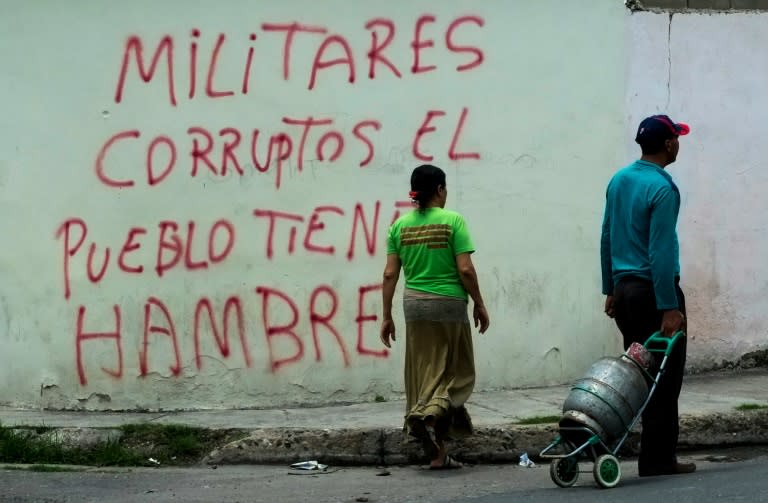Venezuela opposition demands key Maduro recall ruling
Venezuela's opposition demanded a key ruling Tuesday on its push to organize a recall vote against President Nicolas Maduro, whose camp insisted there is "no way" he will face a referendum this year. Maduro's opponents are hoping the threat of unrest caused by Venezuelans fed up with a dire economic crisis, food shortages and mounting chaos will force the authorities to let a recall referendum go ahead. But as a key deadline in the process arrived with no immediate word from electoral officials, the opposition coalition, the Democratic Unity Roundtable (MUD), sought to ratchet up the pressure. "The country is expecting an announcement on when we will collect the (four million signatures) to open the doors to the referendum," MUD executive secretary Jesus Torrealba told electoral authorities at a press conference. Tuesday was the final day for the National Electoral Council (CNE) to rule on the validity of an initial batch of 200,000 signatures needed to move on to the next stage of the long and winding recall process. But it was unclear when the CNE, which the opposition accuses of dragging its feet, would announce its ruling. If the CNE gives the green light, the opposition will then have to collect another four million signatures, or 20 percent of the electorate. That would then force a recall referendum, in which Maduro's opponents would need more votes than he won with in 2013 -- around 7.5 million. It is a lengthy bureaucratic tightrope, and the opposition is racing to get across it by January 10, the cutoff to trigger new elections. After that date -- four years into the president's six-year term -- a successful recall vote would simply transfer power to Maduro's hand-picked vice president. The leftist president's right-hand man, Diosdado Cabello, pooh-poohed the opposition's efforts. "There's no way there will be a recall election," said Cabello, who accuses the opposition of starting its recall drive too late and engaging in massive fraud. "There won't be a recall election in 2016, or in 2017 either, at the rate we're going," he said. The opposition submitted 1.8 million signatures in May calling for Maduro to face a recall, 1.3 million of which were accepted by the CNE. Signatories then had to show up at electoral offices last month to give their fingerprints and validate their identity, braving long lines and sweltering heat. Opposition leaders said 326,000 signatories had been fingerprinted across the country during the five-day process -- well over the 200,000 needed. - 'No turning back' - Venezuela, home to the world's largest oil reserves, has been pushed to the brink of economic collapse by the plunge in global crude prices. Deep in recession and facing inflation forecast to hit more than 700 percent this year, the country has gone into an economic tailspin, threatening Maduro and the leftist "revolution" launched in 1999 by his late predecessor and mentor, Hugo Chavez. The opposition's referendum push comes after it won legislative elections in December, only to find its power stymied by a Supreme Court it condemns as a Maduro lapdog. The fractious center-right coalition has not fared much better with its referendum drive. It accuses the government of sabotaging the process through delays, obstacles, threats and retaliation against signatories. Opposition leaders have called nationwide rallies for Wednesday to pressure the government. If the electoral authority allows them to move on to the next phase, the second petition drive, they will then have just three days to collect nearly four million signatures. After that, the authorities will have 15 business days to count and validate them. A recent poll found 64 percent of Venezuelans would vote to remove Maduro. "The referendum is a long and complicated process, but there's no turning back. It's the national will," said sociologist Mercedes Pulido. "How will it play out? That all depends on the authorities."




